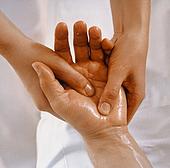When it comes to women’s health, particularly regarding menstruation, PMS, and menopause, there remains a significant gap in education and awareness. Too many women navigate their lives without sufficient knowledge about their bodies, which can lead to confusion, discomfort, and a sense of isolation.
A recent survey highlights a troubling reality: 30% of respondents reported that they first learned about menstruation only after they started experiencing it. This lack of early education is alarming, especially considering how critical it is for women to understand the natural processes of their bodies from a young age.
The time to change this narrative is now. It is essential for women to feel confident and comfortable in their own skin, empowered with the knowledge to make informed decisions about their health.
The Call for Accessible Education
Proov CEO Amy Beckley passionately addresses this issue, stating, “It happens far too often that a woman has questions and concerns about her body. That’s because education surrounding women’s health is so inaccessible to so many that it’s hard to believe what is true. Generations of women should not be asking the same questions about their bodies; instead, there needs to be a higher level of education all around.”
Beckley’s words resonate deeply, as they reflect the frustration of countless women who feel let down by the education systems and societal norms that failed to provide them with adequate information about their own bodies. This lack of accessible education is not just a personal inconvenience; it is a public health issue that affects half the population.
Building a Foundation of Knowledge
Education should be a right, not a privilege. It should be accessible to everyone, everywhere, regardless of their background or location. When women have access to reliable information about their health, they are better equipped to take charge of their bodies and the symptoms associated with menstruation and menopause.
Accurate and comprehensive education helps demystify these natural biological processes, reducing the stigma and misinformation that have long surrounded women’s health. Beckley further emphasizes, “This not only helps women feel more confident and comfortable in their own skin but breaks the stigma surrounding women’s sexual health. Healthcare is just that… care. Having an accurate source of information will spread to so many people and can be passed down through the generations.”
Breaking the Stigma
Breaking the stigma around women’s sexual health requires collective action. It demands that we challenge outdated perceptions and encourage open, honest conversations about menstruation, PMS, menopause, and everything in between. By normalizing these discussions, we create a culture where women feel seen, heard, and supported.
The stigma surrounding women’s health issues often leads to silence, misinformation, and shame. This can have detrimental effects on both mental and physical health, as women may feel isolated or embarrassed to seek the help they need. By fostering a culture of openness and understanding, we can ensure that future generations of women have the knowledge and resources they need to thrive.
The Path Forward
Creating real change and making education more accessible has to start somewhere. It starts with acknowledging the gaps in our current systems and actively working to fill them. It means advocating for comprehensive sex education that includes thorough information about menstruation, PMS, menopause, and other aspects of women’s health.
Moreover, it involves leveraging technology and digital platforms to disseminate accurate information widely and effectively. Online resources, social media campaigns, and virtual workshops can play a pivotal role in reaching women who may not have access to traditional forms of education.
Educational institutions, healthcare providers, and organizations like Proov must collaborate to create and promote resources that are both accessible and reliable. By doing so, we can empower women to take control of their health, feel comfortable in their own skin, and break the cycle of misinformation that has persisted for far too long.
In conclusion, the time to prioritize women’s health education is now. By providing women with the knowledge and resources they need, we can foster a society where every woman feels confident, empowered, and informed. As Amy Beckley so aptly puts it, healthcare is about care, and ensuring that women have the right information is a crucial part of that care. Let’s commit to making women’s health education a priority, for the benefit of all women and the generations to come.




